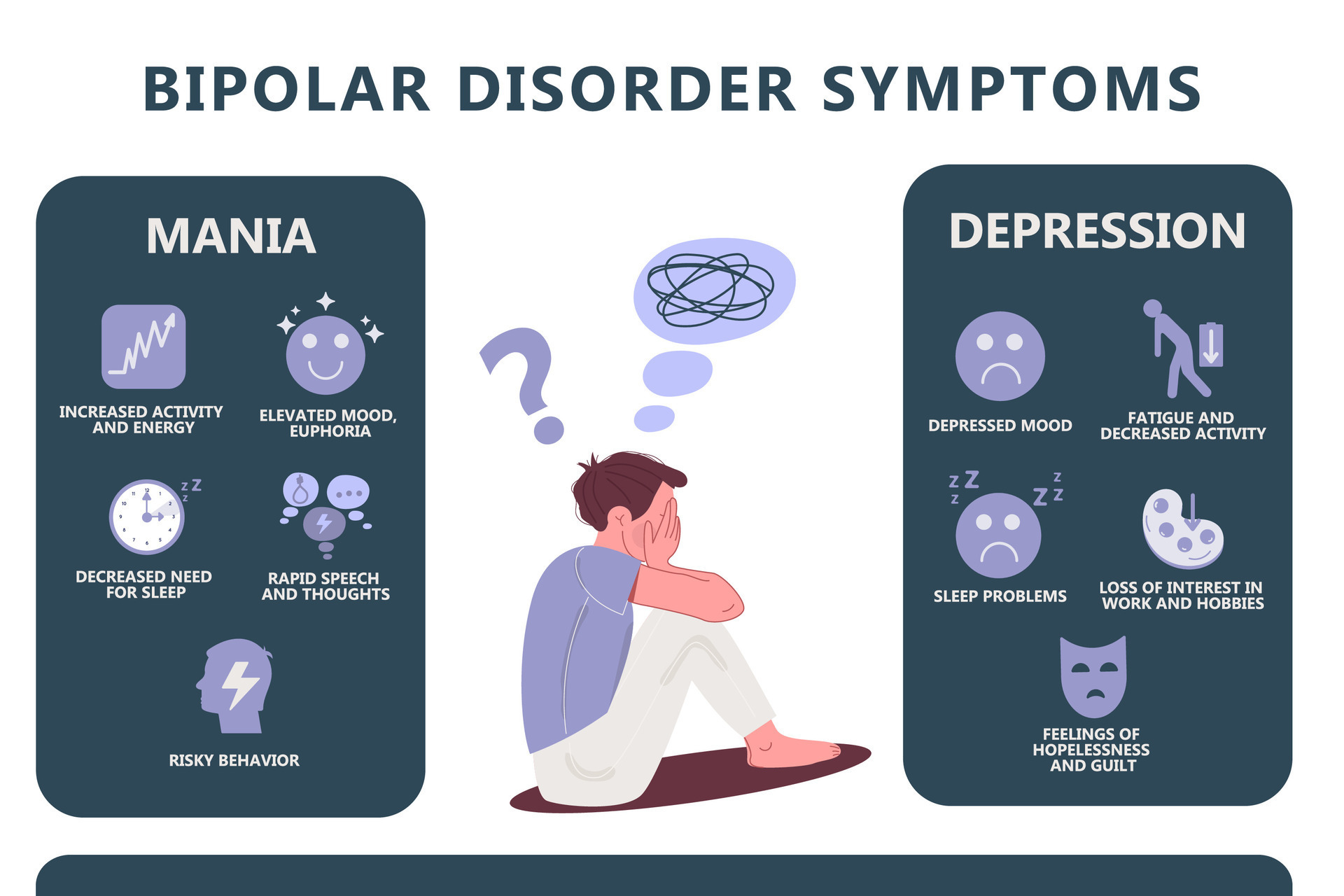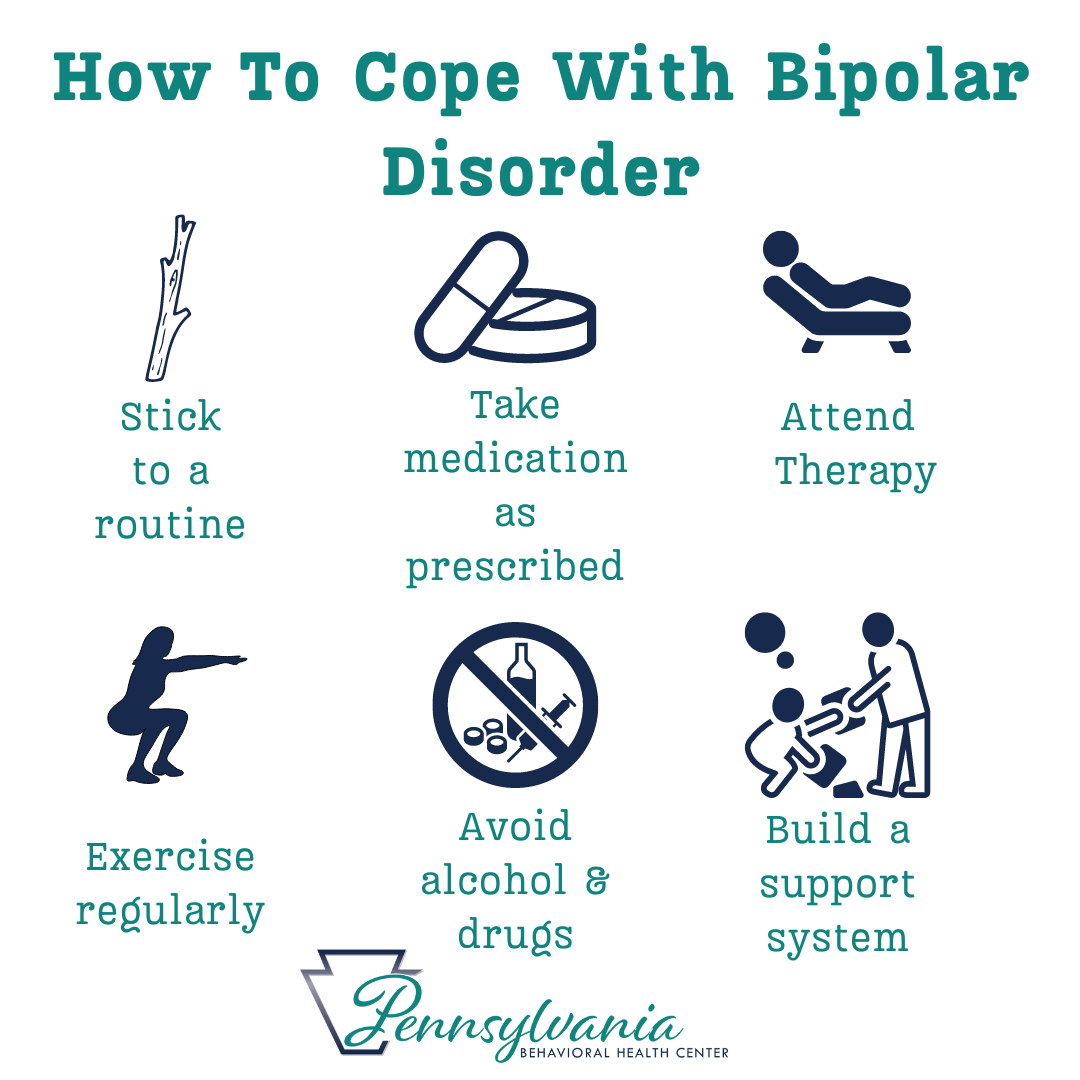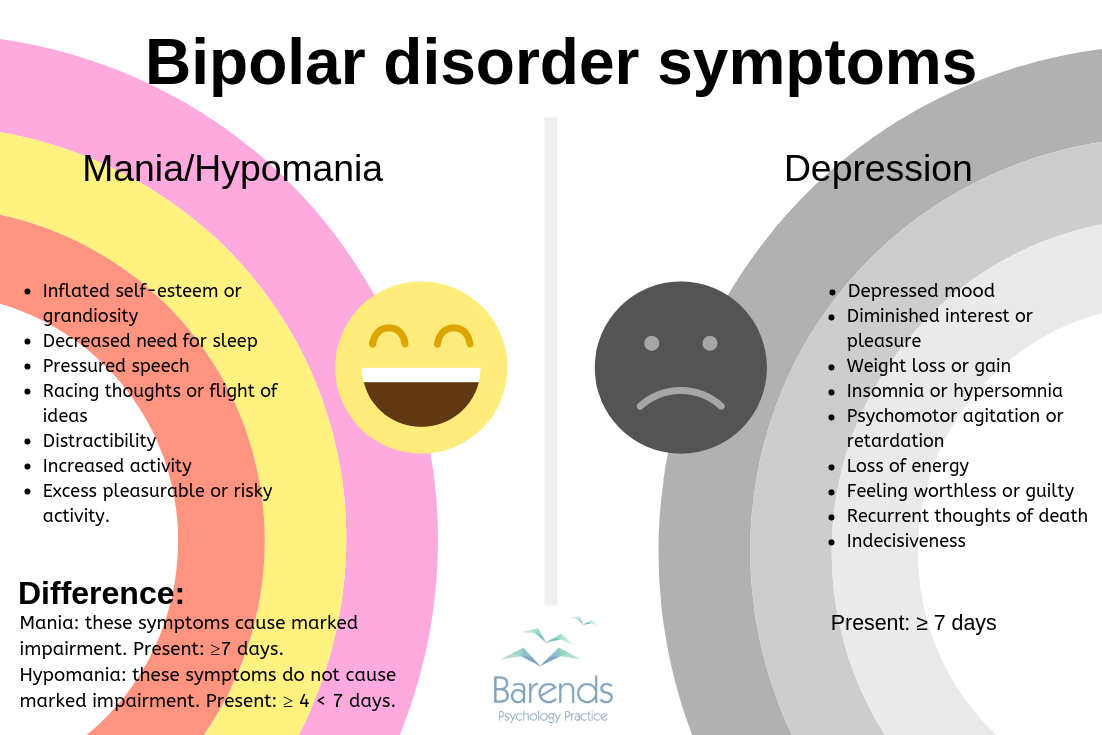Table of Contents
- Understanding Bipolar Disorder: Institute For Advanced Psychiatry ...
- Understanding Bipolar Disorder | Mental Health Awareness
- Here's what may increase the risk for bipolar disorder | Health ...
- Here's all you need to know about bipolar disorder from the expert ...
- What's bipolar disorder? | Ohio State Medical Center
- Bipolar disorder: Symptoms, causes, types, and treatment
- Infographics of bipolar disorder mental disease. Depression, manic ...
- Bipolar disorder is a mental health condition characterized by extreme ...
- Mental Health Treatment For Bipolar in Pennsylvania | Phoenixville
- Bipolar disorder symptoms, risk factors, and interesting facts.



What is Bipolar Disorder?



Symptoms of Bipolar Disorder



Treatment Options
The NIMH emphasizes the importance of seeking professional help if symptoms of bipolar disorder are present. Treatment options may include: Medications: Mood stabilizers, antipsychotics, and antidepressants can help manage symptoms. Psychotherapy: Cognitive-behavioral therapy, family-focused therapy, and interpersonal therapy can help individuals cope with the condition. Lifestyle Changes: Regular exercise, healthy eating, and stress management techniques can help alleviate symptoms.
Research and Resources
The NIMH is committed to advancing our understanding of bipolar disorder through research. The institute funds studies on the causes of the condition, as well as the development of new treatments. The NIMH also provides a wealth of resources for individuals and families affected by bipolar disorder, including: Publications: Booklets, fact sheets, and brochures on bipolar disorder. Online Resources: Websites, online support groups, and hotlines. Clinical Trials: Opportunities to participate in research studies. Bipolar disorder is a complex and challenging condition, but with the right treatment and support, individuals can manage their symptoms and lead fulfilling lives. The National Institute of Mental Health is a trusted source of information and resources on bipolar disorder, providing valuable insights and guidance for those affected by the condition. If you or someone you know is struggling with bipolar disorder, don't hesitate to seek help. With the right support and treatment, it is possible to manage the condition and improve overall mental health and well-being.For more information on bipolar disorder and other mental health conditions, visit the National Institute of Mental Health website.